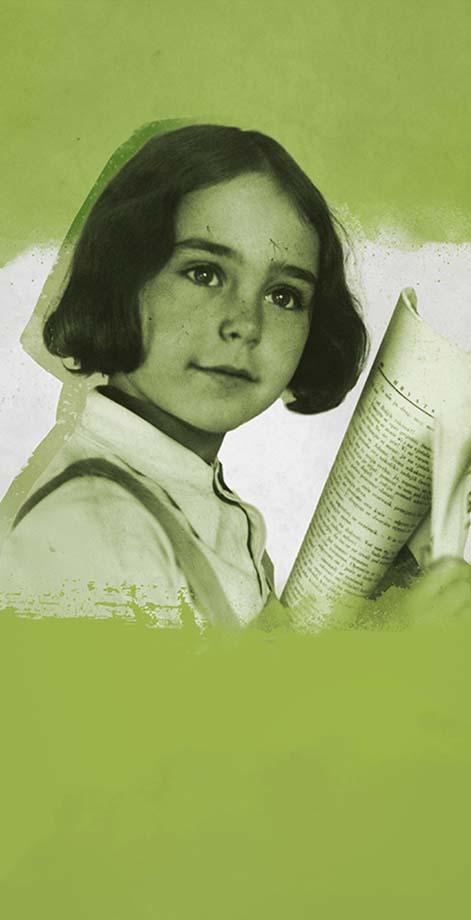
18 I 1927, Zagreb – V 1943, in transport (while being transported) to KL Auschwitz-Birkenau
Multi-talented child actress, star of the Croatian Theater National Theater in Zagreb, where she first performed as a five-year-old girl. She was called a child prodigy and compared to Shirley Temple, she excelled in dramatic and comedic roles.
Lea Deutsch was born into a middle-class, well-to-do Jewish family. Her father Stjepan was a lawyer, her mother Ivka (née Singer) was a homemaker. Her younger brother was named Aleksandar. The family lived in the center of Zagreb, at 29 Gundulić Street.
She was a multi-talented young artist - she played the piano, sang, danced, and revealed a great talent for acting. She was a star of the Croatian National Theater in Zagreb (HNK), beloved by audiences. She made her debut on the HNK stage when she was just five years old, and her exceptional singing and dancing abilities were particularly evident in the title role of the operetta “The Miracle Child” by Tito Strozzi, written especially for her. By the age of 14, she had appeared in numerous dramas, comedies, operas and operettas.
She was one of the most talented child actresses of her generation, distinguishing herself with a modern style both on and off the stage. She wore a bob hairstyle, wore slacks and even a tuxedo with a cylinder, modeling herself after Hollywood icon Marlene Dietrich. She excelled in boyish roles, even though there was no shortage of male child actors in those days.
In 1941, the Independent State of Croatia was established on the territory of present-day Croatia and Bosnia and Herzegovina, where racial purity laws, modeled on those of the Nazis, were introduced as recently as April of the same year. Mass arrests of Jews began in June 1941.To save themselves, the Deutsch family converted to Catholicism. Despite various attempts to seek help, in May 1943 Lea, her mother and brother were arrested and deported to Auschwitz. Lea died on the way to the camp or shortly after reaching it. Her mother and brother died in Auschwitz. Her father survived the Holocaust by hiding in a ward of the Sisters of Mercy Hospital in Zagreb. He was convinced that he was the only one in real danger as an adult. He died in 1959.
Lea's story has long awaited its commemoration in Croatia. Her life became the basis of Miljenko Jergović's novel “Ruta Tannenbaum” (2006), and Branko Ivanda made a feature film about the young actress, “Lea and Darija” (2011). In front of the Deutsch family's house in 2020 appeared Zagreb's first Stolpersteine, a cobblestone with a brass plaque bearing the name of Lea Deutsch.
Bibliography:
Bitunjac Martina, Lea Deutsch. Dijete glume, glazbe i plesa, Zagreb 2021.
Između slave i zaborava. Lea Deutsch, čudo od djeteta i žrtva Holokausta, the exhibitionin the Croatian National Theater in Zagreb, May 2024.
Židovski biografski leksikon, https://zbl.lzmk.hr/?p=3080